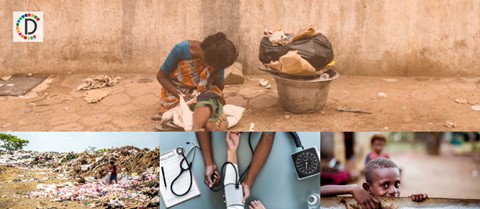Reuters Health News Summary

Following is a summary of current health news briefs. Bat meat still popular in parts of Indonesia, despite coronavirus fears
Bat meat is still popular in some parts of Indonesia, despite research suggesting the coronavirus spreading from China might have originated in bats before being passed on to humans. Bats are traditionally eaten by the Minahasan people from North Sulawesi in the form of a curry-like dish called Paniki. Whole bats are used in Paniki, including the head and wings. Mother's beauty products might impact girls' weight gain
Mothers who use beauty products containing chemicals known as parabens during pregnancy may be more likely to have overweight daughters, a small study suggests. Babies tended to be heavier at birth, and more likely to become overweight by age 8, when mothers used makeup, lotions and other common beauty products containing parabens while pregnant, the study found. One of these chemicals, butylparaben, was associated with excess weight only in girls. Dutch order poultry to be kept indoors after German bird flu outbreak
The Dutch farm ministry has ordered all commercial poultry farmers should keep their birds confined indoors as of midnight on Tuesday following reports of a German outbreak of the highly pathogenic H5N8 bird flu virus. The measures are to ensure that Dutch commercial poultry do not catch the disease from potentially infected wild birds from neighboring Germany, the ministry said in a press release. Novartis lung cancer drug gets priority U.S. review
Novartis has won fast-track U.S. regulatory review for capmatinib (INC280) in a hard-to-treat form of lung cancer, the Swiss drugmaker said on Tuesday. Capmatinib is a MET inhibitor being evaluated as a treatment for first-line and previously treated patients with locally advanced or metastatic MET exon 14 skipping (METex14) mutated non-small cell lung cancer. Vaccine for new coronavirus 'COVID-19' could be ready in 18 months: WHO
The first vaccine targeting China's coronavirus could be available in 18 months, "so we have to do everything today using available weapons", World Health Organization chief Tedros Adhanom Ghebreyesus said in Geneva on Tuesday. He said the virus had been named COVID-19, explaining that it was important to avoid stigma and that other names could be inaccurate. How disease sleuths used sequencing to link mumps outbreaks in Massachusetts
U.S. scientists used gene sequencing technology to tie together what appeared to be unrelated outbreaks of mumps in the Boston area, helping to rule out the possibility that the virus had mutated to evade vaccine protection, a new report says. The report, published in PLoS Biology, is the latest to show how gene sequencing helps public health officials solve infectious disease outbreaks. Novacyt biotech company says winning race for high-speed virus test
Franco-British biotech company Novacyt says it can offer a coronavirus test that is faster than rival methods by focusing on a narrow sequence of DNA coding, as it fights stiff competition to turn the outbreak into a business opportunity. In an appeal for sharing virus samples and speeding up research into drugs, vaccines, and diagnostics, the World Health Organization on Tuesday said China's coronavirus outbreak posed a "very grave threat for the rest of the world." Japan cruise ship coronavirus cases climb to 175, including quarantine officer
Another 39 people have tested positive for the coronavirus on the quarantined Diamond Princess cruise ship in Japan as well as one quarantine officer, bringing the total to 175, the health ministry said on Wednesday. The Diamond Princess was placed in quarantine for two weeks upon arriving in Yokohama, south of Tokyo, on Feb. 3, after a man who disembarked in Hong Kong was diagnosed with the virus. The epidemic originated in mainland China, where more than 1,100 people have now died from the virus. Surprise surgery bills happen even when patients plan ahead
One in five patients who get elective surgery at U.S. hospitals that accept their insurance may still get surprise medical bills, especially if they receive anesthesia, a new study suggests. The study looked at what happened to almost 350,000 patients who had non-emergency surgery between 2012 and 2017 at hospitals and clinics that belonged to their health plan network, using surgeons who accepted their insurance. New coronavirus cases lowest since Jan. but experts disagree over peak
China on Wednesday reported its lowest number of new coronavirus cases since late January, lending credence to a prediction from the country's senior medical adviser that the outbreak could be over by April. International experts, however, remain alarmed by the spread of the flu-like virus which has now killed more than 1,100 people, all but two in mainland China.
(This story has not been edited by Devdiscourse staff and is auto-generated from a syndicated feed.)
ALSO READ
Hong Kong detains and deports press freedom group staffer from city
China stocks rise as commodities shine; Hong Kong snaps winning streak
China stocks wobble on weak CPI; Hong Kong snaps 3 days of gains
Russia and Germany urge restraint as Iranian threat puts Middle East on edge
Between the US and a hard place, Germany's Scholz reheats China ties










